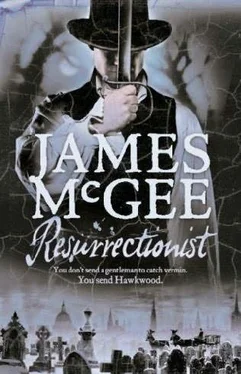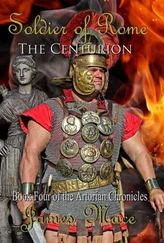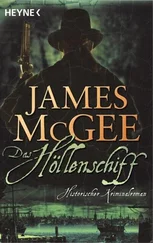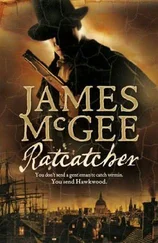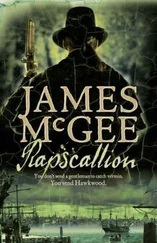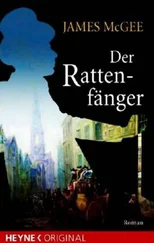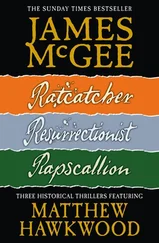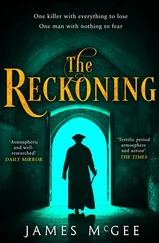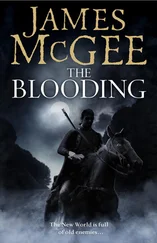James McGee - Resurrectionist
Здесь есть возможность читать онлайн «James McGee - Resurrectionist» — ознакомительный отрывок электронной книги совершенно бесплатно, а после прочтения отрывка купить полную версию. В некоторых случаях можно слушать аудио, скачать через торрент в формате fb2 и присутствует краткое содержание. Жанр: Исторический детектив, на английском языке. Описание произведения, (предисловие) а так же отзывы посетителей доступны на портале библиотеки ЛибКат.
- Название:Resurrectionist
- Автор:
- Жанр:
- Год:неизвестен
- ISBN:нет данных
- Рейтинг книги:4 / 5. Голосов: 1
-
Избранное:Добавить в избранное
- Отзывы:
-
Ваша оценка:
- 80
- 1
- 2
- 3
- 4
- 5
Resurrectionist: краткое содержание, описание и аннотация
Предлагаем к чтению аннотацию, описание, краткое содержание или предисловие (зависит от того, что написал сам автор книги «Resurrectionist»). Если вы не нашли необходимую информацию о книге — напишите в комментариях, мы постараемся отыскать её.
Resurrectionist — читать онлайн ознакомительный отрывок
Ниже представлен текст книги, разбитый по страницам. Система сохранения места последней прочитанной страницы, позволяет с удобством читать онлайн бесплатно книгу «Resurrectionist», без необходимости каждый раз заново искать на чём Вы остановились. Поставьте закладку, и сможете в любой момент перейти на страницу, на которой закончили чтение.
Интервал:
Закладка:
But she did so gracefully.
The cellar lay in semi-darkness and was as cold as a cavern. Formerly a church crypt, it was situated below an annexe of Christ’s Hospital, in an alleyway off Newgate Street. Because of its proximity to both Christ’s and St Bartholomew’s and, more importantly, because its stout doors made it impregnable to the resurrection gangs, the authorities had been using it as a mortuary for a number of years.
The flagstone floor was uneven and covered with a grainy black residue. Hawkwood assumed most of the stains on the floor were congealed blood, accumulated over God knew how long. As for the rest, he tried not to think about it. He was more than familiar with the sweet, sickly odour of death, but in the enclosed space the smell of body fluids and decaying flesh was overpowering, somewhere between overripe fruit and rotting meat. Looking around at the cellar’s contents, he decided he’d seen cleaner field hospitals.
With its low curved roof, rough brick walls and encircling ring of dark alcoves, the only difference between the crypt’s previous function and its current one was the condition of the occupants.
The walls of the alcoves were lined with narrow ledges. In the past, they’d have held coffins. Now, they were the resting places for corpses awaiting either examination or burial. The crypt had become a waiting room for the deceased; a dead house.
The main central space was being used as the examination and dissection room. In the middle of the floor were four wooden tables. Upon each of them lay a body, covered by a coarse sheet. The sheets were filthy and encrusted with gore, as was the apron of the surgeon, who, in response to Hawkwood’s arrival, did not bother looking up from his task but instead gave a brusque instruction to close the door.
Hawkwood did as he was bid.
The man in the apron still did not look up, but continued probing the body in front of him. “Good man. You are…?”
Hawkwood told him.
“Ah, yes, Hawkwood. Come away in! I’ll be with you momentarily. Name’s Quill, by the way. You’re looking a bit doubtful. You were expecting someone else perhaps? I’m afraid my predecessor has the gout. You’ll have to make do with me.” With that, the speaker finally raised his head.
Hawkwood found himself looking at a man whose stature suggested he might have been more at home running a boxing booth at a country fair than wielding a surgeon’s knife. His head, which was bullet-shaped and completely shaved, gleamed with sweat, while the blood-smeared pinner he was wearing was more reminiscent of a Smithfield slaughter yard.
Hawkwood had indeed been expecting someone else. The usual surgeon, McGregor, a large, vain, overbearing man, did not like dealing with subordinates — a category which included Runners — so Hawkwood had not been looking forward to the meeting. Seeing this new face was like taking in a breath of fresh air, which, given the circumstances, was a commodity somewhat in short supply.
The surgeon put down his knife, stepped away from the table, and wiped his hands on a cloth tucked into the apron strings. He crooked a finger at Hawkwood, beckoning him over.
“It appears you’ve been busy.”
Quill drew back the first sheet. It was the remains of the porter, Doyle. In the darkness of the crypt, the crow-ravaged eye sockets gave the grey-skinned features the hollowed appearance of a skull.
“This one died hard,” Quill said. The surgeon’s breath hung in the air like a cloud of steam. He appeared impervious to the chill in the cellar and unaffected by the smell of the cadavers around him.
Hawkwood looked again at the body, remembering how he had first seen it. Time had done little to erase the memory. His eyes fastened on the face. There was something protruding from the corpse’s open mouth, he saw. He stared. It looked like frog spawn, though he knew it wasn’t.
Quill, following his gaze, frowned, and gave a dismissive grunt. “Purge. It’s caused by an expansion of gases in the body. You’ll have seen it before, no? The gases put pressure on the stomach, forcing recent contents into the oesophagus and up into the mouth. It’s not uncommon. If he were alive, he’d either be burping or farting. Another week or two and it won’t be bile he’ll be leaking, it’ll be what’s left of his brain.”
Hawkwood said nothing. He couldn’t think of an appropriate response.
The surgeon pursed his lips. “Cause of death was a broken neck leading to asphyxiation, though I dare say you’d assumed that already.” Quill did not look up but walked around the body, lifting and peering at each of the corpse’s wrists in turn. “Interesting.”
“What is?” Hawkwood asked.
Quill raised the arm he was holding. “These stigmata. The nails were placed through his wrists and not the palms of his hands. Had that been done, the nails would not have supported the body’s weight but would likely have been torn free. One wonders where the killers learned their trade. There’s a lot of damage to the wrists, not consistent with the nailing, by the way.”
Hawkwood explained the efforts by the two gravediggers to get the dead man down from the tree.
“Could he have been alive when they nailed him up?” Hawkwood asked.
Quill did not respond immediately. He lowered the dead man’s arm and then said, “Probably done post mortem. I found traces of skin beneath his fingernails. They correspond to the scratch marks on his neck — d’you see there?” The surgeon pointed. “That would be from clawing at the rope, which would indicate he was alive when he was raised up. I would surmise he was lifted, probably with someone holding on to his arms and legs. Once he was in position, his limbs were released, leaving him to hang, struggling for air. The weight of his body, pressure on the rope and gravity would have done the rest.”
“They took out his teeth and his tongue,” Hawkwood said.
The doctor grimaced. It was the first time he had shown any emotion. “Indeed they did. And the removal, as you saw, was crudely done.”
“They couldn’t have done that while he was still alive,” Hawkwood said. “Could they?”
“Unlikely. I doubt he’d have opened his mouth voluntarily.” Quill smiled grimly. “And it is difficult to force someone’s mouth open against their wishes. Most probably they waited until he was dead, then lowered him back to the ground, performed the deed, and raised him back into place, which is when they would have hammered home the nails to keep the body in position. Somewhat convoluted, I admit, but effective, nevertheless. As I said, he died hard.”
Hawkwood wondered how many it had taken. At least four, he thought: two to hold the arms while they secured the rope, another to hang on to the feet, the fourth to do the job. It didn’t bear thinking about.
The surgeon draped the sheet back over the bloodless face and moved to the next table. The second sheet was lifted away.
“Remarkable,” Quill murmured, staring down.
Hawkwood wondered if it was his imagination or whether he had detected a note of admiration in the doctor’s voice.
Quill looked up. “A man of the cloth, I understand?”
“Reverend Tombs,” Hawkwood said.
“Interesting name for a God-botherer,” Quill observed.
If the comment had been the doctor’s attempt at humour, Hawkwood didn’t respond.
“No evidence of restraint here,” Quill murmured. “There’s no question the victim was dead before the mutilation was performed. I examined the chest; the lungs were healthy, but there was a slight engorgement of blood. I suspect laudanum could well have been swallowed, probably administered by means of a beverage. There was a faint smell around the mouth. As I perceive no other signs of injury, other than the obvious, I would deduce that the victim was smothered after the narcotic had done its work. The facial skin was removed once death was established. There was clearly a degree of expertise involved.” Quill looked up. “Curious that asphyxiation should be the common denominator, though I doubt it was the same killer. I take it the crimes are not related?”
Читать дальшеИнтервал:
Закладка:
Похожие книги на «Resurrectionist»
Представляем Вашему вниманию похожие книги на «Resurrectionist» списком для выбора. Мы отобрали схожую по названию и смыслу литературу в надежде предоставить читателям больше вариантов отыскать новые, интересные, ещё непрочитанные произведения.
Обсуждение, отзывы о книге «Resurrectionist» и просто собственные мнения читателей. Оставьте ваши комментарии, напишите, что Вы думаете о произведении, его смысле или главных героях. Укажите что конкретно понравилось, а что нет, и почему Вы так считаете.
